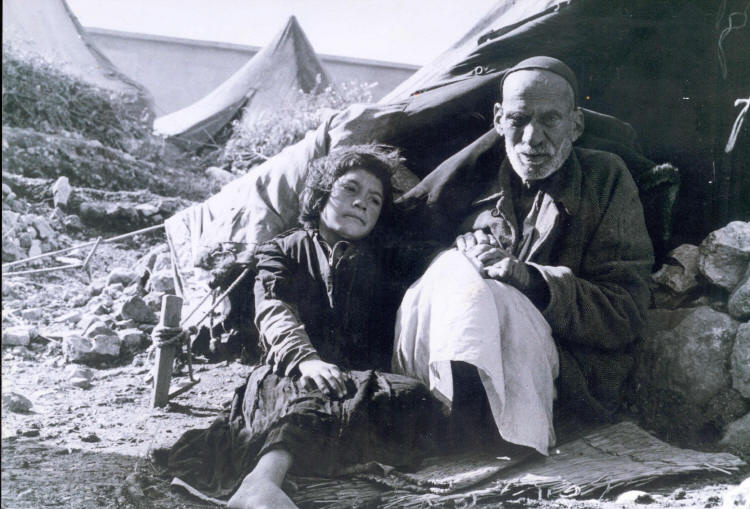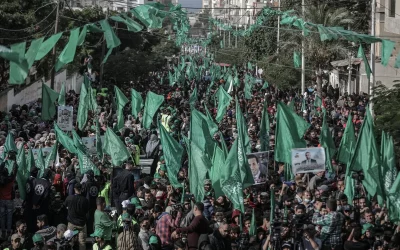Also known as ‘al-Nakba’ (Arabic for ‘the Catastrophe’), the 1948 War was the foundational event effecting the future of the Palestinian people. Following the rejection of the 1947 UN Partition Plan by Arab states who deemed the plan an international acceptance of a colonial movement (Zionism) taking over the land of the indigenous Palestinian people, fighting began between Arab and Zionist forces. By early April 1948, the Zionist forces had secured control over most of the territory allotted to the Jewish state in the UN plan. After proclaiming the State of Israel in May and through the fighting that followed, Zionist forces began to go on the offensive, conquering territory beyond the agreed partition borders that was meant to be part of a future Palestinian state.
During the conflict and with the establishment of the Israeli state, 700,000 Palestinians were expelled from their homes or fled the war. The lands and property left behind were seized by Israel which immediately enacted measures to prevent the refugees from returning to their lands. This mass expulsion and prevention of return is referred to as ethnic cleansing by many historians. In 1948, the Palestinian refugee problem and the legal-political regime of fragmentation, dispossession and ethnically-based discrimination which serves as the basis of Israeli policy towards Palestinians were both born.

 Hamas
Hamas  Palestinian Citizens of Israel
Palestinian Citizens of Israel  Second Intifada
Second Intifada